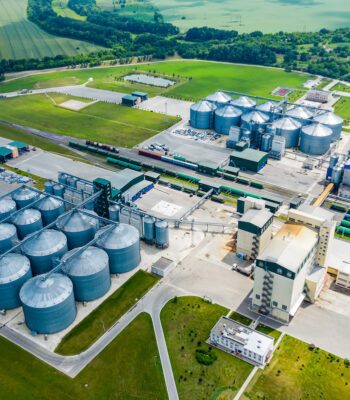In 2023, companies reported that their supply chain emissions were, on average, 26 times higher than emissions from their direct operations—so it’s never been more essential to tackle supply chain decarbonization. And in order to do that, companies need supply chain emissions data that is specific and trackable, with higher-quality insights than they can get from spend-based estimates alone.
To enable that transformation, Optera launched the next generation of our Supply Chain Manager this fall. Today, we’re sitting down with Senior Product Manager Emily Eck to understand how this new solution targets the most pressing challenges that sustainability teams currently face.
Need a supply chain emissions management solution? Reach out today and we’ll show you how Supply Chain Manager can help you drive meaningful climate action throughout your supply chain.
Getting to insights faster
One of the biggest shifts? Speed to first insight. “We wanted to make it easier to just start,” says Emily. The team rebuilt the onboarding process from the ground up, turning what used to take months into something that can be done in days.
The new platform lets companies hit the ground running, automatically matching companies’ supplier spend against Optera’s database of 10,000 companies and their emissions data to help users jumpstart their scope 3, category 1 inventory.
Empowering clients to evolve past spend-based tracking
The platform supports granular supplier-specific Scope 1, 2 and 3 emissions data. This enhanced specificity changes how companies can approach reduction efforts and sets a foundation for even more precise supplier data (facility emissions and product carbon footprint) in the future.
“No matter how good your data is, if spend is your main vector for allocation, spending less is your most direct tool to reducing your emissions,” Eck points out. “And that’s not the goal—the goal is to reduce your emissions independent of spend.”
The reimagined Supply Chain Manager enables customers to widen their focus beyond spend-based estimates to more specific, supplier-level data. Customers can immediately layer in supplier-specific details through automated matching with Optera’s proprietary supplier database. They can then build even greater supplier-specific data coverage using Optera’s Outreach module. With Outreach, companies can not only collect data from suppliers who already calculate and report emissions, but also help suppliers calculate their emissions for the first time — creating what Emily calls a “virtuous cycle of getting better data and getting better access to ways you can decarbonize.”
This means companies can now:
- Use real supplier data in place of estimates
- Track emissions improvements at the supplier level, independent of spending changes
- Work directly with high-impact suppliers on improvements
Making emissions data transparent and auditable
The complexities of enterprise supply chains have made it challenging to trace an emissions value all the way from its source to an eventual emissions inventory. “The challenge that we aimed to solve was the auditability of the data,” Emily explains. Not only that, but the message from Optera clients was loud and clear: we—and our verifiers—need to see the math.
The new Supply Chain Manager delivers. Every emissions value shows its calculation and source, so companies and auditors can easily trace each item in their inventory; this includes full transparency into spend-based emissions factors and supplier-specific data.
A deeper view of the supply chain
The platform now streamlines the inclusion of upstream supplier emissions—beyond just Scope 1 and 2—by integrating suppliers’ upstream Scope 3 data as a standard feature, not an afterthought. “Optera is focused on providing a full view of supply chain emissions,” says Emily. “This ensures allocations from your tier 2 suppliers and beyond can be fully captured in your inventory.”
Enabling cross-team collaboration
Insights from supply chain emissions data can be powerful for multiple teams—from sustainability specialists to procurement managers. The evolved Supply Chain Manager strips away technical jargon and presents data in clear, actionable formats.
“We took that concept of having one place to talk about a supplier and really simplified it into a clear narrative about ‘this company has these emissions, here’s how they were calculated, here’s where we want to go,’” Emily explains.
Automating busywork, empowering impact
The Supply Chain Manager vision is clear: true self-service. Companies should be able to upload new inventory data, automatically match supplier information, and move on to what matters—decarbonization strategy. Between streamlined data management, automated supplier matching, and cradle-to-gate emissions tracking, Supply Chain Manager frees up time for actual emissions reduction work. After all, as Emily puts it: “Nobody gets into ESG because they want to do data uploads.”
Ready to spend less time wrestling with data and more time driving impact? Request a demo with the Optera team to see Supply Chain Manager in action.


